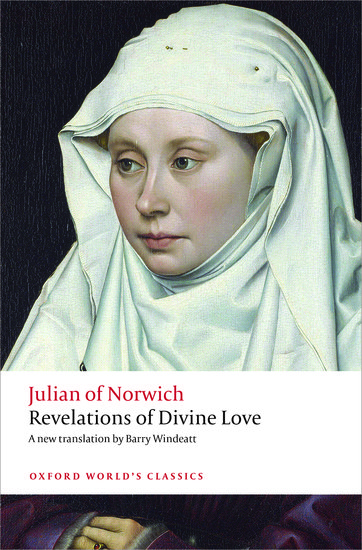“In This Love We Have Our Beginning”
Jonathan Wilson
Seven hundred years ago, a far worse pandemic swept across Asia, North Africa, and Europe. “So many people have died,” one Italian wrote in 1348, “that everyone believes it is the end of the world.” In Norwich, a city in eastern England, the dazed survivors included a seven-year-old girl. We know her as Julian. She would live through more epidemics and terrible local wars. And when she was thirty years old, while suffering from a severe fever, Julian would receive a series of visions of Jesus Christ. She would spend the rest of her life trying to understand them.
Last month, looking for some Lenten reading, I picked out the Revelations of Divine Love, the book Julian of Norwich wrote about her visions. To be honest, I didn’t know much about it—just that it was the first book written in English by a woman. And it’s different from the sort of thing I usually read. I couldn’t know how timely it would soon seem.
As I discovered, Julian not only survived terrifying diseases. She also spent the last decades of her life as an “anchoress.” In other words, she devoted herself to God by vowing to spend the rest of her life enclosed in a room attached to a church. As an anchoress, her mission was to serve her community through solitude—not by slowing down a virus, but by living in constant prayer. She probably even partook of the Mass by watching through a window from her room. Sound familiar?
What I found in Julian’s book was a woman struggling to understand not her own suffering, as you might expect, but God’s goodness. How could she find consolation when she was so self-conscious before him as a sinful and mortal person?
In visualizing Jesus’s dying, discolored, blood-caked face, Julian found her answer. You can imagine her sitting up suddenly at the realization: He wanted to be one of us! He became one with us to show us that he made us to be one with him. “For the love and honor of man,” she wrote, “Christ took on our flesh—become one of our afflicted, perishable bodies—so that we, in turn, can become truly ourselves—the spirits he always made us to be, in union with him.”
In the oneness of God’s love, and in Christ’s loving mission to reunite everyone with himself, Julian believed she dimly understood. “Sin is befitting,” she heard Jesus say, “but all shall be well, and all shall be well, and all manner of things shall be well.”
Those have become the most famous lines of her book, quoted by T. S. Eliot in 1942, in his great wartime religious poem “Little Gidding.”
I can’t claim to understand everything that Julian of Norwich wrote. The Revelations of Divine Love include many layers and puzzles. I have a feeling that I’ll return to the book again and again, trying to understand more. What I know for now is that Julian’s conviction of Christ’s love, expressed in his human suffering, has brought me comfort in a difficult time.
If you would like to read the book for yourself, I recommend the new Oxford World’s Classics edition translated (that is, put into more modern English) by Barry Windeatt. It comes with an excellent scholarly introduction, which may be helpful for digging deeper into the book’s meanings. To learn more about Julian of Norwich, you may also want to listen to this 15-minute interview with her biographer Amy Frikholm, which aired on Australian radio a few years ago.
In the Episcopal calendar, Julian of Norwich is commemorated on May 8.
Julian of Norwich, Revelations of Divine Love, tr. Barry Windeatt (2015: Oxford World’s Classics) reviewed by Jonathan Wilson

